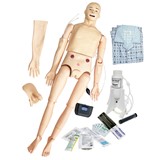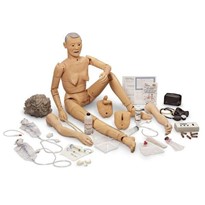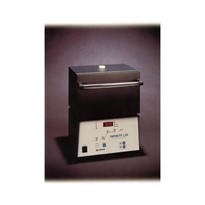The article published in AACN Advanced Critical Care, was Co-oauthored by research assistant professor in the Department of Medical Social Sciences at Northwestern University Feinberg School of Medicine and Osher Center for Integrative Medicine at Northwestern Medicine,Elaine Cheung, PhD.
The piece concludes:
“Many wellness programs and burnout prevention interventions focus on reducing negative states, such as stress, depression and anxiety.
A growing body of evidence highlights the unique and independent role of positive emotion in coping with stress, making it a promising avenue for interventions that aim to reduce burnout and promote well-being among nurses and other healthcare professionals.”
While front line health workers and supporters such as nurses are often conditioned and familiar with demanding schedules and workloads – it’s no surprise that burnout and job fatigue are a common challenge.
So could positive thinking, and the resulting emotional benefits really improve the chances of your nurses suffering burnout?
And could the positive approach actually do us all some good in the way we take on work stress?
Techniques suggested in the article for improving the frequency of positive emotion in every day life included:
- Noticing Positive Events: Take time to savor everyday positive moments, such as celebrating a patient reaching a milestone toward recovery or appreciating meaningful interactions.
- Capitalizing: Amplify and extend the impact of positive events to strengthen the connection between the event and the emotions. This skill could include telling a friend about the event, sharing it on social media or writing about it in a journal.
- Gratitude: Nurture a sense of thankfulness and express gratitude to others.
- Positive Reappraisal: Reframe the significance of negative or stressful events in a more positive way.
- Mindfulness: Focus on the present moment, in a nonjudgmental fashion, such as through formal meditation or informal activities that incorporate mindfulness into everyday workplace activities.
- Personal Strengths: Recognize and appreciate one’s unique set of strengths, skills and talents, and acknowledge those of colleagues.
- Attainable Goals: Establish and pursue personal and team goals for a greater sense of control in a sometimes hectic and often unpredictable work environment.
- Self-Compassion: Be kind and understanding toward oneself and help create a workplace culture where personal experiences with errors and feelings of inadequacy are openly shared and addressed.
- Compassion Toward Others: Help colleagues with seemingly small gestures that provide emotional support and build an overall culture of collaboration and teamwork.
What could you try implementing today to make your practice more ’emotionally positive’?
In recognition of nurses’ busy schedules, the article also includes several examples of brief and practical applications that require a minimal time commitment, are simple and enjoyable to do, and can be easily integrated into everyday workplace activities.
In addition, it includes exercises that can be practiced in a team setting to build collegial support and stronger relationships across the healthcare team.















